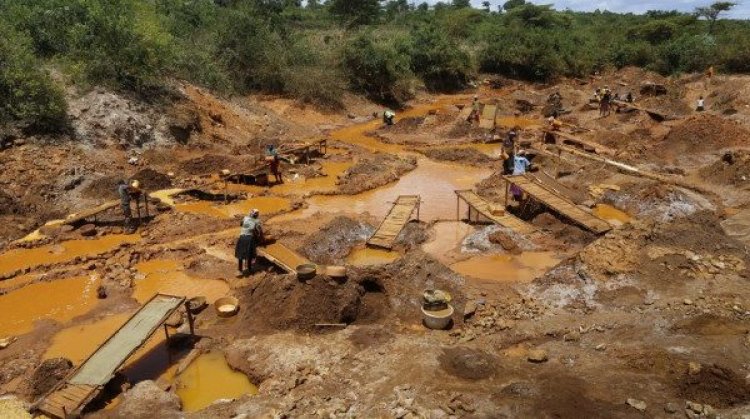Ghana Water Company blame water shortage in the Western Region on Galamsey activities
The PRO of the Ghana Water Service says the illegal mining activities in the region is the main reason for the misfortune in the Western Region following a series of campaign to end the menace by government.

The Western Regional Public Relations Officer for the Ghana Water Company, Nana Yaw Barnes, has responded to residents in the Western Regions complaint of water shortage saying the inhabitants are the cause of the challenge.
According to him, illegal mining activities also called Gaamsey in the region have brought about intense pollution of the water bodies making it difficult for the Ghana Water Company to filter the waters before use.
He revealed that different amounts of chlorine gas are used to purify water for consumption depending on the quality of water that needs to be treated. If the water quality is poor, a higher concentration of chlorine gas will be required to disinfect the water if the contact time cannot be increased.
He has therefore pleaded to residents to exercise patients because the Company is engaging the best of means to get the challenge resolved.
Some residents in the Western Region have lamented on the shortage of water in their various vicinities in such a time of the deadly pandemic.
With grief, they have expressed that their taps have stopped flowing for a week now, a threat to their lives for the reason that in such a time of Covid-19 pandemic where water is needed most is when the Ghana Water Company has refused them water to adhere to key health protocols.
Nana Yaw Barnes also attributed that the harmattan season has also contributed to the situation.
"Because it doesn't rain in this particular season, getting water to supply to our customers is very difficult that is why we have resorted to the water rationing."
He pleaded with the customers to exercise patience since they are working around the clock to solve this issue.
Nhyiraba Kwesi, Western Regional correspondent





































